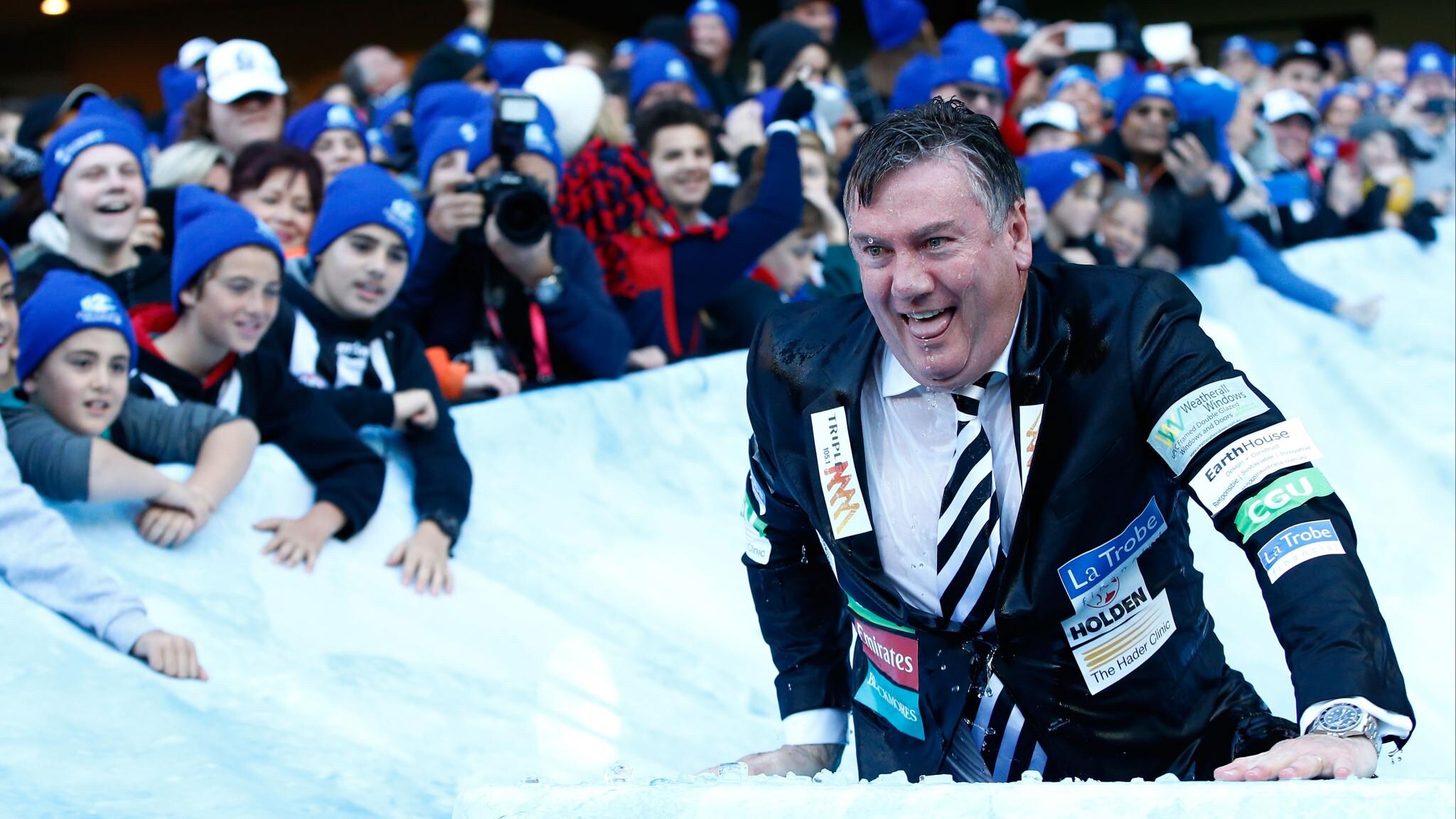NINETY per cent.
That's the figure you need to understand most when it comes to Big Freeze at the MCG and indeed, all fund-raising undertaken by FightMND.
At a time when the final destination for money raised by charitable foundations is rightly in question, FightMND allocates 90 per cent, perhaps even a touch more, to its various 'cure and care' initiatives.
"We're quite excited by that figure," FightMND campaign director Bec Daniher, daughter of former Essendon star and Melbourne coach Neale Daniher, who has been suffering from the disease since 2013, told the AFL Record.
"In the not-for-profit sector that's exceptionally high. If you go over 80 per cent you're doing well so for us to get to 90 is fantastic."
FightMND's sponsors underwrite much of the day-to-day costs. The AFL, for example, provides rent-free accommodation for its executive team at its Docklands headquarters.
>> Watch the coaches hit the MND slide LIVE on the AFL Official App from 2pm AEST
"With events like the Big Freeze, what we aim to do is to recruit enough sponsorship money so that we can assure that the donations coming through go to cure and care because our sponsors take care of the costs of the event" Daniher said.
All up, about $30 million has been raised over the last four years, of which about $23.3 million has been directed towards cure and care initiatives.
There are now four clinical trials running throughout Australia, with Western Australia and South Australia included for the first time.
Seven drug development research projects are also being undertaken and because of the volume of money raised, researchers can spend all year working on them.
"When I first started working at the foundation I found out that the researchers and clinicians spent only three months a year working off grants. Now they get nine months of extra work we can fund," Daniher said.
"My dad has motor neurone disease and I don't want them writing grant papers. I want them to do what they're supposed to be doing, which is hopefully coming up with a cure."
The campaign has also contributed significantly to a drug screening program at the Florey Institute. It is effectively a giant robot that takes skin cells from sufferers, creates their own individual motor neurons and tests different drugs on them, thousands of times over.
"There are so many different forms of the disease," Daniher explained. "What dad has compared to others is unique and what might treat those MND's might be different.
"Instead of a researcher spending an entire day testing a couple of drugs, this robot can do 4000. It's a world first for motor neurone disease and is very exciting when Australia can put up its hand to be a world first in anything."
Eddie McGuire was an MND 'slider' in 2016. Picture: AFL Photos
Among the care initiatives is the provision of equipment to state associations, hospitals and clinics, including respiratory and communication equipment. There are about 2000 MND sufferers in Australia. Between two and three Australians are diagnosed every day with the disease and a similar number die every day.
"Our focus is on independence for the sufferers," Daniher said. "The care funding is really focused on allowing people to be as independent as possible. Communication tools are so important from a mental health perspective to be able to communicate with family and friends."
There has also been a renewed push for equality of care to ensure that all areas of Australia get equal access to the resources they need.
Monday's Big Freeze 4 event, which will see all 18 AFL coaches take the slide into the icy water at the MCG ahead of the Melbourne-Collingwood clash, is the culmination of Fight MND's winter campaign. Central to that are the blue beanies, of which more than 50,000 were sold last year.
But FightMND also consists of Summer Smash, which is centred around the tennis circuit each January and Daniher's Drive, which last October consisted of 400 cars driving around rural Victoria and parts of South Australia to raise money. Bec Daniher says the way even the smallest country towns rally around the cause is truly inspirational.
Neale Daniher, along with fellow sufferer Dr Ian Davis, and Pat Cunningham, whose wife Angie passed away from the disease in 2016, are the 'Three Musketeers' of FightMND.
Bec Daniher says this will be her father's legacy.
"When I was growing up he was putting that effort into footy and I didn't see that much of it, but now I work with him every day and he has an incredible work ethic. It amazes me every day to see what he does."


